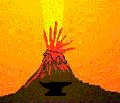| Author |
Message |
 |
|
|
 |
|
Advert
|
Forum adverts like this one are shown to any user who is not logged in. Join us by filling out a tiny 3 field form and you will get your own, free, dakka user account which gives a good range of benefits to you:
- No adverts like this in the forums anymore.
- Times and dates in your local timezone.
- Full tracking of what you have read so you can skip to your first unread post, easily see what has changed since you last logged in, and easily see what is new at a glance.
- Email notifications for threads you want to watch closely.
- Being a part of the oldest wargaming community on the net.
If you are already a member then feel free to login now. |
|
 |
![[Post New]](/s/i/i.gif) 2023/05/18 05:47:47
Subject: Why is avatar such a cultural blank?
|
 |

Battlewagon Driver with Charged Engine
|
 NapoleonInSpace wrote: NapoleonInSpace wrote:Military bad. Primitives good.
In those four words, I just summed up the first movie. That's why I didn't bother seeing the second one.
I swear people remember small soldiers details more than they remember avatar details.
|
|
|
 |
 |
![[Post New]](/s/i/i.gif) 2023/05/18 06:51:17
Subject: Why is avatar such a cultural blank?
|
 |

Hangin' with Gork & Mork
|
cody.d. wrote: NapoleonInSpace wrote: NapoleonInSpace wrote:Military bad. Primitives good.
In those four words, I just summed up the first movie. That's why I didn't bother seeing the second one.
I swear people remember small soldiers details more than they remember avatar details.
That is crazy who could forget such a magnetic figure as Jim Survey?
|
Amidst the mists and coldest frosts he thrusts his fists against the posts and still insists he sees the ghosts.
|
|
|
 |
 |
![[Post New]](/s/i/i.gif) 2023/05/18 08:49:11
Subject: Why is avatar such a cultural blank?
|
 |

Ridin' on a Snotling Pump Wagon
|
I think it’s just an odd “must see because it was such a landmark in film making”.
In terms of plot it’s really nothing special. Indeed “Fern Gully In Spaaaaace” is a nickname for a reason.
But it has truly dazzling visuals, and the cast do a really good job. Like Jurassic Park, it marked a high point in the evolution of modern CGI, and what can be done with it. It blurs the line between live action and animation.
And I think that’s it. It clearly struck a chord with audiences, because you don’t make nearly $3Bn just by being dazzling. But the main draw was “Come And See The New Thing, It Will Dazzle And Delight”.
|
|
|
|
 |
 |
![[Post New]](/s/i/i.gif) 2023/05/18 09:14:59
Subject: Why is avatar such a cultural blank?
|
 |

Decrepit Dakkanaut
UK
|
I think the important thing to realise is that for a lot of people the cinema is
“Come And See The New Thing, It Will Dazzle And Delight”
They go; see a film; chat about it for a bit after and then they are off home and that's it.
The film doesn't have to ask big meaningful questions; or have a vast lore you can dig into after the film; or be based on some major point of history.
It just has to deliver very quick, easy and instant entertainment.
It's why utterly dross scripts can work because many people are purely there for the visual spectacle and they are happy with explosions and huge mechs fighting each other and more explosions and such.
We on Dakka likely notice because we are the kind who will actually read the book a film is based on; or dig into the lore; we want to know more about the interactions of creatures in the ecosystem; or how the mechs work; or the long history of the peoples of the world; or the political system back on Earth etc...
We are the kind who buy and read source books; who want to go deeper. So when something comes up that's just purely shallow it does surprise us when it becomes such a massive thing.
I'd also say that geeks are perhaps more likely to associate with characters on screen who are non-human. We are concerned that the Transformers film is more about bad highschool drama love flicks and explosions; rather than speeches and fights and interactions from Optimus Prime. "My Bad" as the first lines of the great leader Prime in the first film isn't just a funny quip for a scene, but kind of an insult to a character who should be a mighty inspiring leader.
|
|
|
|
 |
 |
![[Post New]](/s/i/i.gif) 2023/05/18 09:23:39
Subject: Why is avatar such a cultural blank?
|
 |

Ridin' on a Snotling Pump Wagon
|
Entirely fair points.
I’m one to encourage growing your media literacy. Not from a snobby “oh you like that sort of movie” way. More that since I worked on mine (and I’m barely more than an enthusiastic amateur) I’ve found my enjoyment of movies and TV has increased.
It’s the difference between enjoying something, and understanding why you enjoyed it.
For instance, I watched a movie called The Black Book the other week. Low budget anthology movie which wasn’t very good. But, I was able to enjoy it. Not in an ironic way, but because I’ve learned to appreciate the difference between a lazy hack, and someone who genuinely tried their best, but their best just wasn’t very good. It had interesting ideas, and I hope to see more from the team behind it, as I think they may be able to provide some better movies in the future as they learn their craft.
Likewise, I can explain and articulate why I liked the new Godzilla Movies, whilst ragging on the Transformers movies, despite them being largely the same appeal (big things beating each other up).
|
|
|
|
 |
 |
![[Post New]](/s/i/i.gif) 2023/05/18 10:12:04
Subject: Why is avatar such a cultural blank?
|
 |

Decrepit Dakkanaut
UK
|
 Mad Doc Grotsnik wrote: Mad Doc Grotsnik wrote:
Likewise, I can explain and articulate why I liked the new Godzilla Movies, whilst ragging on the Transformers movies, despite them being largely the same appeal (big things beating each other up).
I'd say there's a few things in that
First up the original films were the same. Godzilla or Kong have always been a big thing stomping through cities smashing stuff up. Heck the early ones were literally guys in costumes smashing stuff up on set.
The monster characters don't have spoken lines. The story is about the interaction of people with these monsters rampaging through cities like they'd rampage through the wilds. So the story in terms of narrative and spoken lines has always been carried by the human cast and there's always been this disconnect with the monsters. If anything this actually meant that giving Kong more personality time in Kong VS Godzilla actually deepened Kong as a character and not just a monster.
In contrast in Transformers the original stories were all about the robots. They did the talking, the drama and the humans were 100% side characters. Many comic or TV episodes the humans didn't have to even appear on set. Heck drop into something like Beast Wars and humans don't even appear.
I think that's why fans find the new monster mashup films fine; because they were always just low brains smash stuff with humans carrying the narrative of the story. Nothing's really changed save that the budget and effects are way better.
Transformers is a massive shift on many fronts which changes the whole dynamic.
It then doesn't help when the plot is written daft. Deceptacons able to play as fully human robots who are unable to kill 1 teenager at highschool; every machine in human history being a hiding autobot/deceptacon; the inability for anyone to fix Bumblebee's brain for ages so that he shifts from a character with attitude into almost a side-kick pet kind of role .
|
|
This message was edited 1 time. Last update was at 2023/05/18 10:13:49
|
|
|
 |
 |
![[Post New]](/s/i/i.gif) 2023/05/18 10:29:18
Subject: Why is avatar such a cultural blank?
|
 |

Preparing the Invasion of Terra
|
 H.B.M.C. wrote: H.B.M.C. wrote:For real? Avatar may not have an attachment to the cultural zeitgeist, but it is ubiquitous. Blade Runner though? 
That's obscure sci-fi at best for most people.
I mean it depends, doesn't it? Sci-fi is such a broad category that many would consider most of the Marvel films sci-fi, especially after the first Avengers film because it has aliens and lasers. I read "Do Androids Dream of Electric Sheep" and "I Am Legend" when it was about 12/13ish but before that my exposed to "classic" sci-fi was limited to sporadic reruns of Enterprise when I was off sick from school and Star Wars. With how many superhero movies are out there and other kids' stuff, "classic" sci-fi isn't really big outside of TV anymore because it just doesn't sell nearly as well.
|
|
This message was edited 1 time. Last update was at 2023/05/18 10:31:02
|
|
|
 |
 |
![[Post New]](/s/i/i.gif) 2023/05/18 11:11:24
Subject: Why is avatar such a cultural blank?
|
 |

Regular Dakkanaut
Columbus, Ohio
|
 AduroT wrote: AduroT wrote: NapoleonInSpace wrote: NapoleonInSpace wrote:Military bad. Primitives good.
In those four words, I just summed up the first movie. That's why I didn't bother seeing the second one.
But you summed up the second movie’s plot so perfectly!
INCREDIBLE AIN'T IT???    Automatically Appended Next Post: Automatically Appended Next Post:  BobtheInquisitor wrote: BobtheInquisitor wrote: NapoleonInSpace wrote: NapoleonInSpace wrote:Military bad. Primitives good.
In those four words, I just summed up the first movie. That's why I didn't bother seeing the second one.
This dismisses the subtext: military has cool toys.
Such cool toys.
There is that.
|
|
This message was edited 1 time. Last update was at 2023/05/18 11:15:22
First, all means to conciliate; failing that, all means to crush.
-Cardinal Richelieu |
|
|
 |
 |
![[Post New]](/s/i/i.gif) 2023/05/18 11:48:57
Subject: Why is avatar such a cultural blank?
|
 |

Been Around the Block
|
 Overread wrote: Overread wrote:
They go; see a film; chat about it for a bit after and then they are off home and that's it.
I think that's a key point. The engagement of geeks, fans, whatever you call it with media is different in kind and intensity from the larger part of the audience, and I say this without judgment of either group. You're not silly NERRRDS if you spend more time and thought on a movie, and you're not shallow and stupid if you don't. To use a gaming analogy, Avatar is huge with casuals. They love it, they may watch it multiple times in the theater, and that's it. They feel no need to do fan art, or buy merchandise, or design a homebrew tabletop minis game, because that's not how they engage with media. But when a sequel shows up thirteen years later, they show up in the millions and bring their families. The biggest movie in the world can't possibly be a "cultural blank," especially not if its sequel instantly becomes the second biggest movie in the world. People loved the first part enough to go watch the second, that's cultural impact. Movie criticism, professional as well as amateur, hasn't really been able to grasp this phenomenon.
For me, Way of Water wasn't necessarily the best movie I saw last year, but it was probably my favorite theater experience. I have no interest in watching it at home, which doesn't make it a bad movie, but one that is fully focused on being a 3D theater experience.
|
|
|
 |
 |
![[Post New]](/s/i/i.gif) 2023/05/19 09:55:38
Subject: Why is avatar such a cultural blank?
|
 |

Fixture of Dakka
|
 AceXT wrote: AceXT wrote: Overread wrote: Overread wrote:
They go; see a film; chat about it for a bit after and then they are off home and that's it.
I think that's a key point. The engagement of geeks, fans, whatever you call it with media is different in kind and intensity from the larger part of the audience, and I say this without judgment of either group. You're not silly NERRRDS if you spend more time and thought on a movie, and you're not shallow and stupid if you don't. To use a gaming analogy, Avatar is huge with casuals. They love it, they may watch it multiple times in the theater, and that's it. They feel no need to do fan art, or buy merchandise, or design a homebrew tabletop minis game, because that's not how they engage with media. But when a sequel shows up thirteen years later, they show up in the millions and bring their families. The biggest movie in the world can't possibly be a "cultural blank," especially not if its sequel instantly becomes the second biggest movie in the world. People loved the first part enough to go watch the second, that's cultural impact. Movie criticism, professional as well as amateur, hasn't really been able to grasp this phenomenon.
For me, Way of Water wasn't necessarily the best movie I saw last year, but it was probably my favorite theater experience. I have no interest in watching it at home, which doesn't make it a bad movie, but one that is fully focused on being a 3D theater experience.
I see where you're coming from, and I can't disagree with your points.
HOWEVER.
I would argue that Avatar has had little cultural impact all the same. Sure, the movies made a ton of money... and that's all they did.
Here it is nearly 60 years on, and Star Trek is still culturally relevant and talked about. Not quite fifty years on and Star Wars is still culturally relevant and talked about. Back in the 1980s I can safely tell you NO ONE was having the sort of mass conversations about the movies and radio plays of the 1920s and '30s like those two franchises are still discussed.
Avatar? People saw the movie and moved on, and for 13 years there was pretty much nothing. Avatar 2 comes out, people saw it and moved on and there's pretty much nothing. I'll bet when Avatar 3 comes out it'll make another boatload of money as people go see it... and there will still be pretty much nothing afterwards.
That's the difference. Avatar is something you go watch and that's it. Star Trek, Star Wars? Those are things you watch and talk about afterwards. It shows up in places other than within it's own franchise. That's why Star Trek and Star Wars are culturally relevant.... and Avatar is pretty much a cultural blank despite making upward of five billion dollars so far.
|
CHAOS! PANIC! DISORDER!
My job here is done. |
|
|
 |
 |
![[Post New]](/s/i/i.gif) 2023/05/19 12:46:11
Subject: Re:Why is avatar such a cultural blank?
|
 |

Been Around the Block
|
I similarly can't disagree with most of your observations, but I think the idea of cultural relevance is too limited here. Relevance isn't just measured by the fan culture you attract, because culture isn't just what is created and sustained by fans. Sure, Star Trek is still talked about by fans, and there's more product put out by the franchise. But how many people watch Trek, shows or movies, and how many people watch Avatar? I think the latter is dismissed because it's easier to track fan cultures, and we're lacking a framework that accounts for the exceptional reception of Avatar (I don't have one either, I'm sorry to say). And obviously, we're geeks here, and we tend to approach things from a geek point of view. Now, if the question had been "Why doesn't Avatar have more of a visible fan culture, given its undeniable success?" I'd have given a different, though not much more helpful response.
|
|
|
 |
 |
![[Post New]](/s/i/i.gif) 2023/05/19 13:41:03
Subject: Why is avatar such a cultural blank?
|
 |

Battlefield Tourist
MN (Currently in WY)
|
 Vulcan wrote: Vulcan wrote: Back in the 1980s I can safely tell you NO ONE was having the sort of mass conversations about the movies and radio plays of the 1920s and '30s like those two franchises are still discussed.
A slight quibble, people were still talking about the Orson Welles War of the Worlds broadcast.
....and to think about it, many of those old radio plays had been re-made into serials, comics, TV shows, and movies by then. Shows/Movies like Annie, Lone Ranger, The Shadow, Elliot Ness, Flash Gordon, Superman, etc. So, they may not have been talking about the radio serials anymore, because they had been replaced with new versions of them on the TV or film screen all ready.
|
|
This message was edited 2 times. Last update was at 2023/05/19 13:44:57
Support Blood and Spectacles Publishing:
https://www.patreon.com/Bloodandspectaclespublishing |
|
|
 |
 |
![[Post New]](/s/i/i.gif) 2023/05/19 17:17:29
Subject: Why is avatar such a cultural blank?
|
 |

Longtime Dakkanaut
|
Avatar didn't reach the same level of fanbase and cultural impact than Star Trek or Star Wars for a few reasons in my opinion.
First, while it has some potential to be, Avatar is not very ''toyetic''. Star Wars and Star Trek both produced an enormous quantity of toys than both represented what was seen on screen and even expanded it a little bit. Being a popular household toy allows you to build a dedicated fanbase. Similarly, those movies were advertised like movies. There is no massive amount of Avatar T-shirts and the like. The marketing for the movie is less agressive, more in line with other non big franchise movies.
Second, Avatar doesn't create a particularly original universe. It creates a beautiful environment, but it doesn't have to scope and mysticism of Star Wars. It doesn't have the politics of Star Trek either.
Third, the movies were released too far appart and were too self contained, more akin to a chronicle of a planet than an actual multi-part ongoing story.
|
|
|
 |
 |
![[Post New]](/s/i/i.gif) 2023/05/19 17:49:51
Subject: Why is avatar such a cultural blank?
|
 |

Leader of the Sept
|
I'm not sure that's quite true on the merch side. There were a lot of Avatar branded Kinder Easter eggs around a couple of months back. Also there are the expected toy ranges supporting the film, and Amazon at least have an awful lot of t-shirts available.
Maybe less in the novel space, but there appear to be several visual dictionaries and sticker books and suchlike.
|
|
This message was edited 1 time. Last update was at 2023/05/19 17:51:53
Please excuse any spelling errors. I use a tablet frequently and software keyboards are a pain!
 Terranwing - w3;d1;l1 Terranwing - w3;d1;l1
 51st Dunedinw2;d0;l0 51st Dunedinw2;d0;l0
 Cadre Coronal Afterglow w1;d0;l0 Cadre Coronal Afterglow w1;d0;l0 |
|
|
 |
 |
![[Post New]](/s/i/i.gif) 2023/05/19 18:55:28
Subject: Why is avatar such a cultural blank?
|
 |

Preparing the Invasion of Terra
|
 Flinty wrote: Flinty wrote:I'm not sure that's quite true on the merch side. There were a lot of Avatar branded Kinder Easter eggs around a couple of months back. Also there are the expected toy ranges supporting the film, and Amazon at least have an awful lot of t-shirts available.
Maybe less in the novel space, but there appear to be several visual dictionaries and sticker books and suchlike.
Yeah, but this is the second movie and there was nothing for the first film in terms of tie-in merch. Hell, the Lego sets are going back to the first film to retroactively make merch for it.
|
|
|
 |
 |
![[Post New]](/s/i/i.gif) 2023/05/19 19:50:07
Subject: Why is avatar such a cultural blank?
|
 |

Hangin' with Gork & Mork
|
I've seen a lot of merchandise but I've never seen anyone buying it or using it. Star Wars/Star Trek/WWE/Marvel stuff I see evidence of it moving but the Avatar stuff just sits there collecting dust.
|
Amidst the mists and coldest frosts he thrusts his fists against the posts and still insists he sees the ghosts.
|
|
|
 |
 |
![[Post New]](/s/i/i.gif) 2023/05/19 20:48:14
Subject: Re:Why is avatar such a cultural blank?
|
 |

Fixture of Dakka
|
 AceXT wrote: AceXT wrote:I similarly can't disagree with most of your observations, but I think the idea of cultural relevance is too limited here. Relevance isn't just measured by the fan culture you attract, because culture isn't just what is created and sustained by fans. Sure, Star Trek is still talked about by fans, and there's more product put out by the franchise. But how many people watch Trek, shows or movies, and how many people watch Avatar? I think the latter is dismissed because it's easier to track fan cultures, and we're lacking a framework that accounts for the exceptional reception of Avatar (I don't have one either, I'm sorry to say). And obviously, we're geeks here, and we tend to approach things from a geek point of view. Now, if the question had been "Why doesn't Avatar have more of a visible fan culture, given its undeniable success?" I'd have given a different, though not much more helpful response.
Well that's an easy question to answer. It's because Avatar doesn't have any fans. No matter how much $ it makes, it's hard to have a fan culture without fans....
|
|
|
 |
 |
![[Post New]](/s/i/i.gif) 2023/05/19 21:10:21
Subject: Why is avatar such a cultural blank?
|
 |

Calculating Commissar
|
 H.B.M.C. wrote: H.B.M.C. wrote:
Commissar von Toussaint wrote:I suspect that Blade Runner - which was regarded as a commercial failure when released - has had a far larger cultural impact.
For real? Avatar may not have an attachment to the cultural zeitgeist, but it is ubiquitous. Blade Runner though? 
That's obscure sci-fi at best for most people.
Blade Runner is an interesting example here, I rather shamefully, have tried to watch it and 2049 and failed to make it all the way through on any occasion, despite hearing great things about it. It just didn't have a pace that hooked me. I've seen Avatar the whole way through.
I still know more about Blade Runner than Avatar. But that's probably from the occasional meme or pop culture reference.
|
|
|
 |
 |
![[Post New]](/s/i/i.gif) 2023/05/19 21:34:09
Subject: Why is avatar such a cultural blank?
|
 |

Longtime Dakkanaut
|
Avatar never established itself in pop/geek culture because it is fundamentally lacking substance, nuance and interesting characters. It's a simplistic story propped up by gorgeous (and at the time of Avatar one's release groundbreaking) visuals. I'd lie if I said I didn't enjoy it for the sheer spectacle back then, but I can't say I've spent much time thinking about it since.
|
|
|
 |
 |
![[Post New]](/s/i/i.gif) 2023/05/19 22:05:23
Subject: Why is avatar such a cultural blank?
|
 |

Decrepit Dakkanaut
UK
|
Pleasant and pretty, but without much substance,
what is more culturally significant (but won't be thought about by most folk) is all the new CGI tech developed to make it which then became the foundation of so much other stuff
(in the same way Terminator 2 perfected and popularized the 'liquid metal' animation effect, but alas i can't point to something quite as specific from avatar, but if i was a CGI geek i probably could)
|
|
|
|
 |
 |
![[Post New]](/s/i/i.gif) 2023/05/19 22:42:55
Subject: Why is avatar such a cultural blank?
|
 |

The Marine Standing Behind Marneus Calgar
|
Herzlos wrote:
Blade Runner is an interesting example here, I rather shamefully, have tried to watch it and 2049 and failed to make it all the way through on any occasion, despite hearing great things about it. It just didn't have a pace that hooked me. I've seen Avatar the whole way through.
I still know more about Blade Runner than Avatar. But that's probably from the occasional meme or pop culture reference.
I’ve talked about movie pace with a couple of more cinemaphile friends before. Modern movies are paced completely different than older films. Bladerunner (both of them) are paced like classic noir films.
People complain about the new marvel movies being non-stop CGI fight scenes. They are not alone in this. Modern films are more action, cut, more action. If you looks at how they are cut and edited, how long each scene is, everything is faster. No time to wait, not time to watch a cigarette slowly turn to ash in a mood filled room.
If you grew up on modern films, older ones will just seem to drag.
And not to get all yelling at clouds grumpy old timer, but I liked it better the old way. You got more evocative moments, became more grounded in the movie. Modern movies feel all flash, no substance sometimes.
|
|
|
|
 |
 |
![[Post New]](/s/i/i.gif) 2023/05/19 23:43:48
Subject: Why is avatar such a cultural blank?
|
 |

Decrepit Dakkanaut
UK
|
 Nevelon wrote: Nevelon wrote:Herzlos wrote:
Blade Runner is an interesting example here, I rather shamefully, have tried to watch it and 2049 and failed to make it all the way through on any occasion, despite hearing great things about it. It just didn't have a pace that hooked me. I've seen Avatar the whole way through.
I still know more about Blade Runner than Avatar. But that's probably from the occasional meme or pop culture reference.
I’ve talked about movie pace with a couple of more cinemaphile friends before. Modern movies are paced completely different than older films. Bladerunner (both of them) are paced like classic noir films.
People complain about the new marvel movies being non-stop CGI fight scenes. They are not alone in this. Modern films are more action, cut, more action. If you looks at how they are cut and edited, how long each scene is, everything is faster. No time to wait, not time to watch a cigarette slowly turn to ash in a mood filled room.
If you grew up on modern films, older ones will just seem to drag.
And not to get all yelling at clouds grumpy old timer, but I liked it better the old way. You got more evocative moments, became more grounded in the movie. Modern movies feel all flash, no substance sometimes.
When you consider that films like the Spaghetti Westerns are still popular and still big films I think that many people do still like slower films. We also still get them, Lord of the Rings has a good few slower parts to the story, same as Harry Potter and many others.
I think the issue is more that we have a few things going on
1) The way we engage with films has shifted. Some films are very much made to be action flicks. No brains wall to wall action to fill a time slot of pure entertainment that isn't designed to ask big questions; but to fill a gap where the film might even be secondary to what's going on.
2) Focus groups and theories. I figure this is a big issue in that we might well have suits who have identified the parts of films that people "talk" about the most and get them excited and then they just hyper focus on those scenes. Not quite realising or appreciating that sometimes that big climatic battle with explosions and all - was big and impactful because of the slow steady build up toward it. That seeing characters fight it out in epic battles is made more engaging and gripping when those characters have growth and development time within the film; which includes slower parts and areas where it might be more talk than action. Parts that people might not engage with as readily, but which build into the whole experience.
3) Writers/directors who are making too much in the extreme or trying to cover too much. Marvel/ DC films do this a LOT. Esp when they have team mashups with a lot of characters at once. They throw so much into the film that there's not enough room for any one plot or character to get full time and development. So to reach their target ending they have to rush.
This can be made worse because even after the film is made; the cutting room can slice out whole chunks (and this is nothing new, its been a curse for films for a long time - heck Alien 3 was torn apart on the cutting room whilst Sergio Leonie also had huge problems with his films being cut up).
I think on some fronts there's an overt move to make fast action flicks; but then again we had them in the past too and they had lots of explosions and action and worked without being so rushed.
I do think we've perhaps a generation of hollywood in certain key roles who are resulting in these rushed feeling films and that its a result of a few moving parts and elements that come together to produce them.
I do worry that the "Age of Streaming" that we are very much in and growing into; could even make this worse. A cinema film only has to get you in the door and your bum on the seat. In theory its work is done then; and yet even that resulted in fast films. So steaming where they not only need your bum on a seat, but your attention through the whole streaming film/series (and where they 100% can monitor you and everyone else to know just how much is being watched even down to what parts get repeated and what are skipped past and all); That kind of environment could make suits seeking maximisation of engagement focus insanely on those "that scene gets watched 50 times so lets just make a whole film that's that scene".
|
|
|
|
 |
 |
![[Post New]](/s/i/i.gif) 2023/05/20 00:26:23
Subject: Why is avatar such a cultural blank?
|
 |

Longtime Dakkanaut
|
 Overread wrote: Overread wrote:I think on some fronts there's an overt move to make fast action flicks; but then again we had them in the past too and they had lots of explosions and action and worked without being so rushed.
I do think we've perhaps a generation of hollywood in certain key roles who are resulting in these rushed feeling films and that its a result of a few moving parts and elements that come together to produce them.
I cut some of your points for clarity's sake, but while I agree with you overall, I think you have the causation wrong.
CGI has made special effects effectively free. If you are already using a green screen with digital landscapes, digital sets, adding F/X to it is a marginal cost at best.
Moreover, you can add whatever you want. Rampaging oversize elephants cost the same as period-perfect Hawker Hurricanes.
In pre-CGI movies, even "action films" had a budget. Prop ammo cost money, as did explosives, renting a helicopter, etc. If you wanted a superlatively big effect, you got one take.
You also had to work around real-world constraints, such as: there is not a squadron worth of flyable Hawker Hurricanes out there. So either make a different movie, or substitute late-war Spitfires and hope no one notices.
This meant that writers and directors had to fill the empty minutes with something else, like character development, plot movement. Action was used to highlight these moments, but could not replace them.
A classic example is Star Wars and lightsabers. pre-CGI, these were difficult and expensive effects, and lightsabers were only ever ignited to underline a major plot point (there are videos on this).
CGI Star Wars can have endless lightsabers doing endless things. No need to save igniting one for a dramatic moment.
There is also the growth of the "overseas" markets - China, India, even into Africa and the Middle East. American culture does not necessarily translate well, but everyone loves big explosions, so that's what we get. You can do an entire film of race cars racing around and make gobs of money. The story is an afterthought.
That's basically "Avatar" in a nutshell - exquisite visuals to entertain, and no need to worry about anything else. Honestly, it's almost a return to silent films.
I will add that film school and writing classes have become hackneyed and stereotyped, packed with tropes and paint-by-the-numbers stories. Older movies were written by people who had done something in life prior to film school and that they could draw upon.
People point to how much character development happened in The Empire Strikes Back, well who was the writer? The same guy who would go on to do The Big Chill, an iconic ensemble movie about nothing more exciting than college friends coming together for a friend's funeral over a long weekend.
|
|
This message was edited 1 time. Last update was at 2023/05/20 00:28:40
|
|
|
 |
 |
![[Post New]](/s/i/i.gif) 2023/05/20 08:34:02
Subject: Why is avatar such a cultural blank?
|
 |

Huge Bone Giant
|
 Nevelon wrote: Nevelon wrote:Herzlos wrote:
Blade Runner is an interesting example here, I rather shamefully, have tried to watch it and 2049 and failed to make it all the way through on any occasion, despite hearing great things about it. It just didn't have a pace that hooked me. I've seen Avatar the whole way through.
I still know more about Blade Runner than Avatar. But that's probably from the occasional meme or pop culture reference.
I’ve talked about movie pace with a couple of more cinemaphile friends before. Modern movies are paced completely different than older films. Bladerunner (both of them) are paced like classic noir films.
People complain about the new marvel movies being non-stop CGI fight scenes. They are not alone in this. Modern films are more action, cut, more action. If you looks at how they are cut and edited, how long each scene is, everything is faster. No time to wait, not time to watch a cigarette slowly turn to ash in a mood filled room.
If you grew up on modern films, older ones will just seem to drag.
And not to get all yelling at clouds grumpy old timer, but I liked it better the old way. You got more evocative moments, became more grounded in the movie. Modern movies feel all flash, no substance sometimes.
I'd argue that in the case of Blade Runner it's specifically the noir style you need to get behind to get something out of the movie. I like slower movies just fine, but found Blade Runner miserable to watch. I can't even detail anymore what it was about the movie that prevented me from engaging with it, or if the director made choices I didn't agree with and that soured me on the experience. I watched it once, thought cyberpunk fans or whatever are a bunch of emos and moved on. No desire to give it another try.
But at least in the case of Blade Runner I can see how people interested in that kind of stuff could get a memorable experience out of the movie. I haven't watched the second Avatar yet, but the only thing I remember about my reaction to the first movie is that it is an incredibly mediocre movie, completely flavorless with nothing that stands out as memorable. In my opinion that's what makes Avatar both successful and prevents it from having much of a cultural footprint. It's nothing more than a pretty, mildly inoffensive movie that was sold on the 3d cinema experience. Bland and inoffensive seem like advantageous traits to me when the point is to get as many people to sign up for the event surrounding the movie rather than the movie itself.
|
Nehekhara lives! Sort of!
Why is the rum always gone? |
|
|
 |
 |
![[Post New]](/s/i/i.gif) 2023/05/20 12:40:07
Subject: Why is avatar such a cultural blank?
|
 |

Longtime Dakkanaut
|
 Geifer wrote: Geifer wrote:I'd argue that in the case of Blade Runner it's specifically the noir style you need to get behind to get something out of the movie. I like slower movies just fine, but found Blade Runner miserable to watch. I can't even detail anymore what it was about the movie that prevented me from engaging with it, or if the director made choices I didn't agree with and that soured me on the experience. I watched it once, thought cyberpunk fans or whatever are a bunch of emos and moved on. No desire to give it another try.
Blade Runner is film noir that uses a futuristic setting. It has sci-fi elements, but does so in the traditional way, like The Omega Man or Soylent Green. Both of those movies are also quite slow. If you like other film noir, you will enjoy Blade Runner immensely. If you don't, you won't get much out of it.
People who want to better understand it should dig into the vast library of film noir. The Maltese Falcon is widely claimed to be the first film noir, and Double Indemnity came out soon after. One of the key elements of noir is that the protagonist is flawed, burned-out, and is being played much of the time. He's tough, but also gets beaten up and/or shot.
Here's my take on Blade Runner from a geek perspective. https://bleedingfool.com/blogs/blade-runner-the-original-version-is-still-the-best/
Appreciating classic films isn't necessarily a generational thing - almost all film noir was done before I was born. It's just like reading ancient literature or anything else - if it resonates, you will get into it. I like noir because it takes time to unfold and isn't a frenetic car-chase/city-destroying special effects spectacular.
Noir can have action, and violence is obligatory, but it's treatment is very different. Here's a write-up on Deckard's "blaster", which the prop masters never even bothered to name. https://bleedingfool.com/blogs/geek-guns-part-4-deckards-blaster-from-blade-runner/
That's typical of how noir handles weapons - they just are, nothing special or epic. Most of the time, the make and model of what even famous characters use is irrelevant. In action films, the weapons are very important, and Star Wars (to give an obvious example) names everything. Every gun gets a label. In noir, 99.9% of the time, the hero carries an anonymous snub-nosed revolver which we may not even see well enough to identify.
What noir does have is intense character portraits and often crisp dialogue. Blade Runner's dialog isn't that sharp, but it has its moments and it makes up for it with incredible visuals and music.
|
|
This message was edited 2 times. Last update was at 2023/05/20 12:44:03
|
|
|
 |
 |
![[Post New]](/s/i/i.gif) 2023/05/20 14:16:25
Subject: Why is avatar such a cultural blank?
|
 |

Towering Hierophant Bio-Titan
Mexico
|
Another issue is that it is harder to achieve a lasting cultural impact these days, at least as cinema originals are concerned.
I mean Star Trek and Star Wars? They are old franchises that most of us watched when we were kids. And I struggle to think about a recent movie that achieved cultural relevance without being an adaptation, reboot or sequel.
|
|
This message was edited 1 time. Last update was at 2023/05/20 14:17:04
|
|
|
 |
 |
![[Post New]](/s/i/i.gif) 2023/05/20 14:41:06
Subject: Why is avatar such a cultural blank?
|
 |

Longtime Dakkanaut
|
 Tyran wrote: Tyran wrote:Another issue is that it is harder to achieve a lasting cultural impact these days, at least as cinema originals are concerned.
I mean Star Trek and Star Wars? They are old franchises that most of us watched when we were kids. And I struggle to think about a recent movie that achieved cultural relevance without being an adaptation, reboot or sequel.
That's a good observation. If anything, series formats seem to be a lot more successful in that regard. Things like Game of Thrones, Mandalorian, Walking Dead and Breaking Bad seem to be a lot more present than movie franchises these days. The only exception in recent years that comes to mind is Avengers, which left a clear mark in pop culture and is heavily referenced today. I wonder if this is an indication for a shift in consumer preference towards series formats in general, where stories are more drawn out and characters have more time to develop, with lots of twists, turns and cliffhangers to keep people engaged.
|
|
|
 |
 |
![[Post New]](/s/i/i.gif) 2023/05/20 14:59:18
Subject: Why is avatar such a cultural blank?
|
 |

Longtime Dakkanaut
|
 BertBert wrote: BertBert wrote:That's a good observation. If anything, series formats seem to be a lot more successful in that regard. Things like Game of Thrones, Mandalorian, Walking Dead and Breaking Bad seem to be a lot more present than movie franchises these days. The only exception in recent years that comes to mind is Avengers, which left a clear mark in pop culture and is heavily referenced today. I wonder if this is an indication for a shift in consumer preference towards series formats in general, where stories are more drawn out and characters have more time to develop, with lots of twists, turns and cliffhangers to keep people engaged.
Series formats always left a mark, though. Shows like "Cheers" or "Friends" or "Seinfeld" were important even as original blockbuster movies were rolling out.
Moviemaking is going through a crisis of originality and I think an overlooked element is the fact that so many studios are now under the Disney umbrella. Look how much content they control. They see a franchise and buy it.
It's arguably worse that the studio system because at least the movie moguls had strong rivalries against each other. Now there's more collusion than competition.
|
|
|
|
 |
 |
![[Post New]](/s/i/i.gif) 2023/05/20 15:10:03
Subject: Why is avatar such a cultural blank?
|
 |

Longtime Dakkanaut
|
 BertBert wrote: BertBert wrote: Tyran wrote: Tyran wrote:Another issue is that it is harder to achieve a lasting cultural impact these days, at least as cinema originals are concerned.
I mean Star Trek and Star Wars? They are old franchises that most of us watched when we were kids. And I struggle to think about a recent movie that achieved cultural relevance without being an adaptation, reboot or sequel.
That's a good observation. If anything, series formats seem to be a lot more successful in that regard. Things like Game of Thrones, Mandalorian, Walking Dead and Breaking Bad seem to be a lot more present than movie franchises these days. The only exception in recent years that comes to mind is Avengers, which left a clear mark in pop culture and is heavily referenced today. I wonder if this is an indication for a shift in consumer preference towards series formats in general, where stories are more drawn out and characters have more time to develop, with lots of twists, turns and cliffhangers to keep people engaged.
For a movie to have a big cultural footprint, you need it to be a series of movie or a genre movie with plenty of very similar movie. Halloween or Friday the 13th, individually, are not significant. Together, they form the backbone of the most popular and recognizable genre of horror movie giving them presence. The same goes for film noir, spaghetti westerns or 90's American macho movie starring Sylvester Stallone, Bruce Willis or the Governator. Stand alone movie with a large cultural footprint that are not of a genre tend to be historical epics since they can attach their relevance to actual famous historical events like Titanic, Saving Private Ryan, Glory or the Schindler's List. Holiday movies who are shown over and over every year can also achieve that status like Home Alone though it did devolve into sequels each less interesting than the precedent one) or Groundhog Day for example. In fact, I can't think of a singular movie that isn't part of a series, a historical movie or part of a well established and popular genre at the time that gained any sort of cultural relevance and impact. Those, while still good and popular, tend to fade rather quickly.
|
|
|
 |
 |
![[Post New]](/s/i/i.gif) 2023/05/20 15:10:33
Subject: Why is avatar such a cultural blank?
|
 |

Legendary Master of the Chapter
|
I don’t think Blade Runner is as simple as “do you like noir?”. I’ve seen two different cuts of the first movie, and “miserable” is a great descriptor for the feeling I got watching it. But I loved Blade Runner 2049. I love a few noir movies. There’s something else off-putting about the first Blade Runner.
 Tyran wrote: Tyran wrote:Another issue is that it is harder to achieve a lasting cultural impact these days, at least as cinema originals are concerned.
I mean Star Trek and Star Wars? They are old franchises that most of us watched when we were kids. And I struggle to think about a recent movie that achieved cultural relevance without being an adaptation, reboot or sequel.
Pacific Rim? Everything Everywhere All At Once? The Conjuring universe? Any recent Tarantino film?
There just aren’t enough wide release films that hit huge audiences today that aren’t sequels, reboots or adaptations.
|
|
|
|
 |
 |
|
|